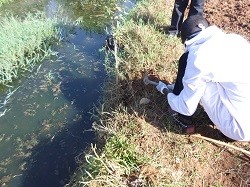Forests help grow Europe’s bioeconomy
Europe’s forestry and forest-based industry (F-BI) face growing competition from regions of the world possessing vast reserves of fast-growing wood fibre. They are also affected by changes in consumption patterns, whilst experiencing low profitability, increasing costs and decreasing prices. To remain competitive, the forestry sector and F-BIs must reduce costs and develop innovative sustainable products, processes and services, changing from a traditional resource-intensive to a value-added knowledge-intensive industry within the growing European bioeconomy. The WoodWisdom-Net+(opens in new window) project addressed these challenges by strengthening innovation and integrating knowledge of large-scale industrial products and processes, as well as primary production to boost forestry and FBIs. “WoodWisdom-Net+ will totally transform Europe’s F-BI and promote sustainable forest management, enabling it to increase resource efficiency and develop new products, while adapting to and mitigating the effects of climate change,” says project coordinator Dr Ilmari Absetz. Transformation of F-BIs will not only increase their competitiveness, but also contribute to EU policies regarding the innovation and sustainability of the sector. Furthermore, it will support EU policies on climate change and sustainable use of resources and energy. For instance, they expect to reduce greenhouse gas emissions by 20 to 30 % with a 20 % increase in renewable energy output by 2020. Cooperation is important The initiative comprised a joint implementation of a trans-national call, from its preparation and publication to the evaluation, selection and funding of proposals. It also involved project monitoring and follow-up between several national and/or regional programmes. “The joint trans-national call addressed the whole forest-based value chain, from the sustainable management of forest resources through their efficient utilisation in industrial processes to value added products and competitive customer solutions,” says Dr Absetz. “The main approach was to substitute non-renewable resources, such as materials or fossil fuels, with renewable forest-based alternatives to reduce carbon emissions and waste.” The call encouraged and made best use of interdisciplinary systems, improving the impact and integration of social research and economics in this area. WoodWisdom-Net+ therefore improved collaboration among industry, SMEs, stakeholder associations, research organisations, and leading scientists from a range of disciplines, including wood material, construction, biological, social, economic and other relevant sciences. Research cooperation allowed participating countries to pool scarce resources and expertise across international borders to achieve a common goal and avoid duplication of effort. Moreover, the participating funding authorities decided together where the EU contribution was most needed. According to colleague Mika Kallio, coordinator of the ForestValue project: “Collaboration permits contributing countries to cover a wider range of research than they could tackle on their own.” Wood – a material for the future WoodWisdom-Net+ is a crucial step towards streamlining, strengthening and enhancing the European Research Area in the forest-based sector. Its success will help drive new urban wood constructions and the development of durable, energy and cost efficient, aesthetically pleasing timber buildings, facades, interiors, bridges and wood-based materials and composites. Results also include innovative wood science-based products and processes for new fuels, chemicals, materials and composites. In addition, the project provided the basis for international harmonisation and standardisation of F-BIs. Dr Absetz observes, “The F-BIs are ideally placed to help build a sustainable future and a knowledge-based economy.”







